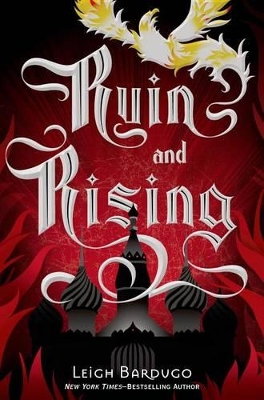Reviewed by pamela on
Alina Starkov is a genuinely great anti-hero. She's complicated, has a believable set of anxieties about her role, and manages to walk the line between potential villain and actual saint with a truth that is rare in YA heroines. My big problem with her, though, is that she doesn't actually do anything. She has a handful of impressive displays of power, but none of them come when they're actually needed. At times in the narrative where she needed to be powerful and impressive, she failed to do anything of note. In one scene, we see her literally lop the top of a mountain in practice, and in the very next scene, her power suddenly seems to be ineffectual. She's meant to be the all-powerful Sun Summoner, but she does very little with her power other than make some pretty lights. It's the people around her who do all the impressive world-saving leg-work.
The series' most significant downfall is the secondary characters. We've seen a lot of them disappear from the narrative in previous books, and Ruin and Rising gives us a brand new set of satellite characters who have had no development up until now. The characters with the most growth are those left over from book one, but the new ones are just there to give Alina a sense of responsibility, and to show her grief when she fails. They lack personality, and character, so when any of them die, are hurt, or betray her, it just didn't matter. I didn't feel anything for them.
The other issue I have with the series is that there wasn't enough development of the logic behind Grisha magic. There is no explanation explored for the unique powers that both Alina and the Darkling exhibit. They exist in the plot only so that they could both be special making it feel more McGuffin than actually integral to the story. Even the Fold, the volcra, and the nichevo'ya didn't make a logical sense in the development of the narrative. We didn't learn how they were created, only that they were...because magic.
The biggest problem with Ruin and Rising however, is its ending. Alina, an independently powerful woman, is metaphorically castrated so she can have a happy ending with a man who is threatened by that power. It was cheap, and Alina deserved better. She deserved a less neat ending. I felt like Bardugo took the easy option, rather than really thinking about how best to serve her characters.
I've said it twice already now, but The Shadow and Bone Trilogy should have been written as adult High Fantasy, and not as YA. There is so much potential in this story, and Leigh Bardugo is a very, very good writer. She needed more space, and a more mature cast of characters to really bring this story to life.
Reading updates
- Started reading
- 22 March, 2020: Finished reading
- 22 March, 2020: Reviewed
